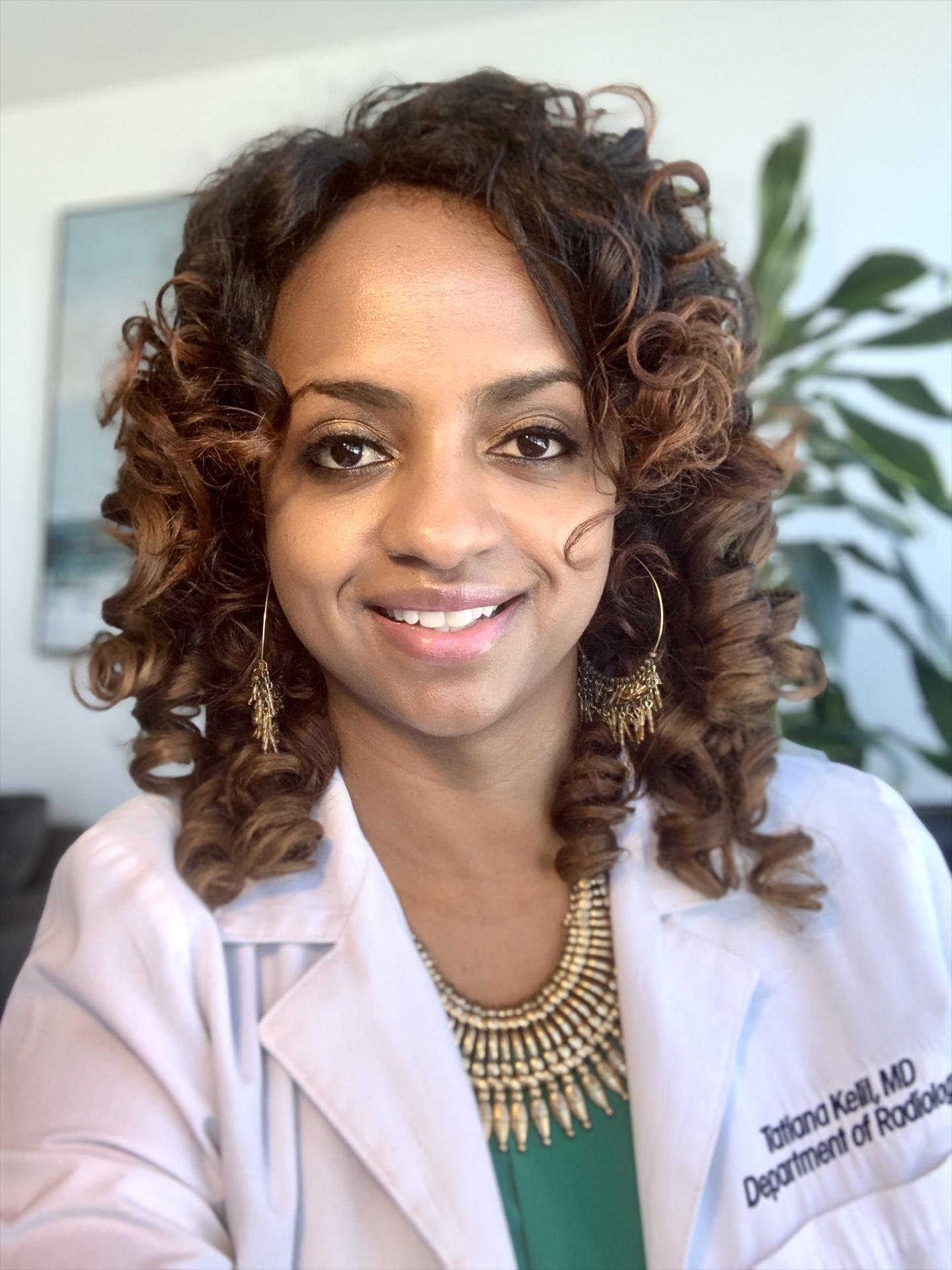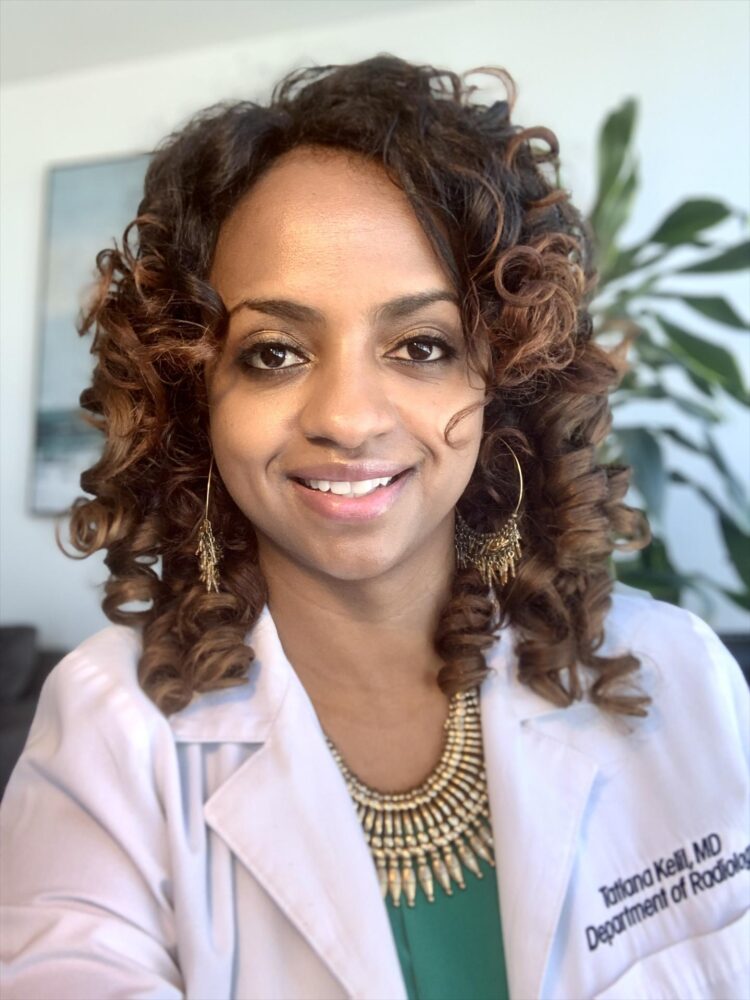Kelil to pursue personalized breast cancer risk assessment using imaging biomarkers and machine learning; Jaimes to investigate fetal diffusion tensor imaging and microstructural brain abnormalities in fetuses with congenital heart disease

Credit: Courtesy of Dr. Kelil
Leesburg, VA, December 18, 2019–The American Roentgen Ray Society (ARRS) is pleased to announce two 2021 ARRS Scholarships, provided by ARRS’ The Roentgen Fund®, have been awarded to Tatiana Kelil, MD of the University of California, San Francisco (UCSF) and Camilo Jaimes, MD of Boston Children’s Hospital (BCH) and Harvard Medical School.
Dr. Kelil, an assistant professor of radiology in UCSF’s breast imaging section, will use the protected time afforded by her ARRS Scholarship to pursue personalized breast cancer risk assessment using imaging biomarkers and machine learning.
“One such imaging biomarker is background parenchymal enhancement (BPE),” Dr. Kelil explained. Noting that BPE is associated with increased breast cancer risk, she added, “machine learning tools can deduce these patterns that might not be discernible to humans from the imaging data,” which could improve conventional risk prediction models.
A neuroradiologist at BCH specializing in advanced pediatric MRI techniques, Dr. Jaimes will use the secured research time from his ARRS Scholarship to investigate fetal diffusion tensor imaging (DTI) and microstructural brain abnormalities in fetuses with congenital heart disease (CHD).
Investigation of these abnormalities in fetuses has been hindered by technical challenges of the acquisition–“mainly fetal motion,” claimed Dr. Jaimes. Reiterating that identifying the onset of abnormalities in brain development and their relationship to clinically relevant outcomes is critical, his study “will employ novel fetal diffusion MRI techniques to address these aims, harnessing cutting-edge MRI processing tools to correct for fetal motion.”
Drs. Kelil and Jaimes will be formally recognized as dual recipients of the 2021 ARRS Scholarship during the opening ceremony of the ARRS Virtual Annual Meeting on Sunday, April 18, 2021.
Tatiana Kelil is assistant professor of radiology at UCSF in the breast imaging section. She also serves as co-director for the UCSF Center for Advanced 3D Technologies. After graduating from Chicago Medical School, she completed a diagnostic radiology residency at Brigham and Women’s Hospital/Harvard Medical School, followed by a women’s imaging fellowship at UCSF. Kelil was awarded the RSNA Roentgen Resident/Fellow Research award in 2015, the RSNA Honored Educator award in 2017, and the John A. Watson Faculty scholarship in 2020. Passionate about improving health outcomes throughout the world, Kelil participates in the UCSF Global Cancer Program and serves as the associate program manager for RAD-AID Ethiopia, a WHO-affiliated nonprofit international organization reaching over 30 countries. She is currently leading a breast imaging training program in Ethiopia and hopes to expand the program to other low-resource regions in the future. In addition to furthering radiology education, Kelil is interested in exploring the role of artificial intelligence in addressing global health care inequalities and optimizing existing resources to help overcome workforce shortages in low-resource regions.
Camilo Jaimes is a neuroradiologist at BCH, director of faculty development for the department of radiology, and assistant professor of radiology at Harvard Medical School. Dr. Jaimes obtained his medical degree from Universidad del Rosario (Bogota, Colombia) and subsequently joined the Children’s Hospital of Philadelphia as a postdoctoral research fellow. He completed a diagnostic radiology residency and a neuroradiology fellowship at Massachusetts General Hospital, as well as a pediatric neuroradiology fellowship at BCH. Dr. Jaimes has authored over 50 peer-reviewed manuscripts. His work revolves around the utilization of advanced MRI techniques to characterize normal development and early injury to various of children. After joining BCH, he focused his work on developing similar analytic techniques for the youngest of patients: the human fetus. In 2020, his work on motion corrected fetal DTI and tractography received the John Caffey award from the Society for Pediatric Radiology for best basic science paper.
###
Founded in 1900, the American Roentgen Ray Society (ARRS) is the first and oldest radiological society in North America, dedicated to the advancement of medicine through the profession of radiology and its allied sciences. An international forum for progress in medical imaging since the discovery of the x-ray, ARRS maintains its mission of improving health through a community committed to advancing knowledge and skills with an annual scientific meeting, monthly publication of the peer-reviewed American Journal of Roentgenology (AJR), quarterly issues of InPractice magazine, AJR Live Webinars and Podcasts, topical symposia, print and online educational materials, as well as awarding scholarships via The Roentgen Fund®.
Media Contact
Logan K. Young
[email protected]
Original Source
https:/





